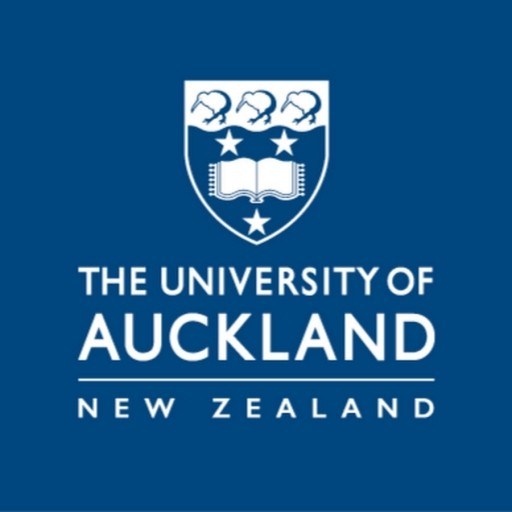Photos of university / #universityofauckland
Art History at the University of Auckland offers a comprehensive and intellectually stimulating program designed to deepen students' understanding of the visual arts across different cultures and historical periods. The program explores the development of art from ancient times to contemporary practices, emphasizing critical analysis, contextual thinking, and innovative research skills. Students will engage with a diverse range of artistic expressions, including painting, sculpture, architecture, and new media, gaining insights into their social, cultural, political, and historical significance. The curriculum combines theoretical frameworks, methodological approaches, and practical skills to prepare graduates for careers in museums, galleries, auction houses, cultural organizations, and further academic research. Through a combination of lectures, seminars, museum visits, and independent research projects, students develop a nuanced appreciation of art's role in shaping human history and society. The program also encourages critical debates on issues such as cultural identity, globalization, and the ethics of art collection and preservation. Students will have access to expert faculty who are actively engaged in international research and curatorial projects, providing mentorship and networking opportunities. With state-of-the-art facilities and a vibrant academic environment, the Art History program at the University of Auckland aims to foster critical thinking, creativity, and a lifelong passion for understanding visual culture. Graduates will be well-equipped to contribute thoughtfully to the arts sector, academia, and beyond, making meaningful connections between the past and present through the lens of visual expression.
- The Renaissance: Art and the City
- Shock of the Modern: Monet to Warhol
- Global Art Histories
- Bible and Popular Culture
- Images and Ideas: Art since Antiquity
- Themes in Art History
- Multimedia Histories
- Reading Images
- Art and Revolution 1750-1850
- Crisis and Change: Mid 19th Century Art in France and Britain
- Northern European Art 1400 – 1600
- Art Crime
- Framing the Viewer: 20th Century Art
- Artists and Patrons in Renaissance Italy
- Māori Art History: Mana Taonga
- Contemporary Art and Theory
- Modernism and Design
- Art and New Zealand: Pasts and Presents
- The Print in Northern Europe 1470-1600
- Contemporary Pacific Art
- Radical Transformations: Modern Art 1875-1950
- Power and Piety: the Baroque
- Imaging the Renaissance
- Gender, Ethnicity and Visual Culture
- Contemporary New Zealand Art
- The Art of Majesty: Tudors and Stuarts
- Special Topic: The Body in Contemporary Art
- Special Topic: Art and the Museum
- Special Topic
- General Certificate of Education (GCE) Advanced Level. A minimum of three A-Level subjects completed, with at least 'C' grade or higher attained. General Studies or similar general papers cannot be included.
- Complete the International Baccalaureate Diploma (minimum total score of 24).
- IELTS (Academic): Overall score of 6.0 and all bands 5.5 or better
- Internet-based TOEFL (iBT): Overall score of 80 plus a written score of 21
- Paper-based TOEFL: Overall score of 550 plus Essay (TWE) of 4.5
- Cambridge English: Advanced (CAE) and Cambridge English: Proficiency (CPE): Overall score of 169 and all bands 162 or better
- Pearson Test of English (PTE) Academic: Overall score of 50 and no PTE communicative skills score below 42. You must authorise the University to view and verify your PTE scores.
- Michigan English Language Assessment Battery (MELAB): 80
The Art History programme at The University of Auckland offers a range of financing options to assist students in funding their studies. Domestic students may be eligible for various scholarships, grants, and financial aid schemes provided by the university, government, and private organizations. These may include Auckland University International Student Scholarships, academic excellence awards, and need-based grants designed to reduce financial barriers for deserving students. International students are encouraged to explore scholarship opportunities such as the University of Auckland International Student Scholarships, which support outstanding students from around the globe.
Additionally, students can consider student loan options offered through the New Zealand government, which provide financial support to eligible domestic students. Part-time work during studies is also a common way for students to supplement their income; the university's location in Auckland offers ample employment opportunities across various sectors, including arts, culture, and education. International students should be aware of visa regulations that may allow limited work hours, which can assist in covering living expenses and studying costs.
Furthermore, students may apply for external funding through organizations related to arts and cultural sectors, or through private foundations that support education in art history. Some students also choose to engage in internships or work placements that may offer stipends or other financial benefits. Cost considerations for Art History students include tuition fees, which vary depending on the program level and residency status, as well as additional expenses such as textbooks, materials, and travel for field trips or conferences. The university's financial services department provides detailed guidance to help students identify suitable funding avenues and develop comprehensive financial plans throughout their academic journey.
BA conjoint programme
You can combine study in two different areas, such as literature and law, politics and business, or engineering and languages. Most conjoint programmes take four years of full-time study to complete.
The communication and creative thinking skills you can develop through a BA can add value to other degrees. You can extend your skills and enhance your career prospects.









